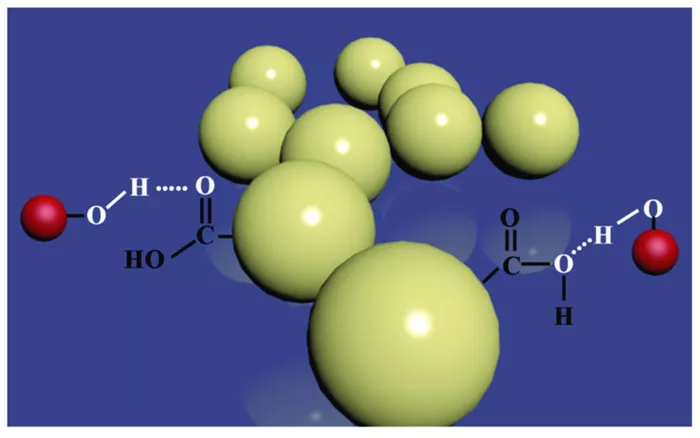Road transport remains one of the leading contributors to air pollution across the European Union and the United Kingdom. Among all vehicular pollutants, nitrogen oxides (NOₓ) are particularly harmful, not only because of their chemical composition but also due to their proximity to human activity. Emitted at ground level, often in densely populated areas, NOₓ increases atmospheric concentrations of nitrogen dioxide (NO₂) and fine particulate matter (PM2.5)—both of which are scientifically linked to respiratory diseases, cardiovascular problems, and premature deaths. The impact is both immediate and long-term, affecting people where they live, work, and commute daily.
The consequences are not abstract. They manifest in hospitals, in school attendance rates, and in national economies. Pollution from diesel engines is not just an environmental issue—it’s a health emergency unfolding on the streets of Europe and the UK every day.
How the Diesel Boom Backfired
In the 1990s, diesel engines became the darlings of climate policy. Fueled by legislation from the European Union and supported by national governments, diesel vehicles were promoted as a cleaner alternative to petrol cars. The rationale was simple: diesel engines emitted less CO₂ per kilometer, which made them appealing in the global push to reduce greenhouse gas emissions. This belief, supported by the scientific consensus of the time, helped diesel vehicles gain a massive foothold across the continent.
But this boom came with hidden costs. The widespread adoption of diesel engines led to a sharp increase in NOₓ emissions, offsetting many of the perceived climate benefits. According to data, diesel emissions accounted for an astonishing 37% to 69% of traffic-related deaths in 2015 in the EU and UK, compared to just 5% to 14% for non-diesel vehicles. The health consequences of the diesel push were not just unintended—they were catastrophic.
Testing in Labs, Polluting on Roads
For many years, emissions testing for vehicles in Europe was conducted solely under controlled laboratory conditions. These tests failed to account for real-world driving behavior and environments. It wasn’t until 2017 that authorities began to implement real-world driving emissions (RDE) testing, which revealed a disturbing truth: diesel vehicles emitted far more NOₓ on the road than they did in the lab.
A major factor behind this discrepancy was the use of so-called “defeat devices”—technological tools embedded in engine software designed to reduce the effectiveness of emissions control systems during normal driving. These devices could detect when a vehicle was undergoing a laboratory test and adjust engine performance to temporarily comply with emission limits. Once back on the road, the vehicles would revert to higher-polluting modes, spewing NOₓ at levels far above legal thresholds.
These tactics are illegal under both EU and UK law, with few narrowly defined exceptions. Nevertheless, they were widely used, undermining decades of air quality policy and regulation.
Dieselgate: The Scandal That Shook the Industry
The extent of the deception came to global attention in 2015 through a groundbreaking investigation. The International Council on Clean Transportation (ICCT), in collaboration with West Virginia University and the United States Environmental Protection Agency (EPA), discovered that Volkswagen had installed illegal defeat devices in millions of its diesel cars.
These vehicles passed emissions tests in laboratories but emitted NOₓ at dangerously high levels during real-world driving. The revelation sparked a scandal known as “Dieselgate,” which triggered legal action, regulatory overhauls, and a wave of public outrage. It also forced both regulators and the automotive industry to confront the environmental and public health implications of defeat devices.
In response to Dieselgate, EU and UK lawmakers introduced stricter rules to limit NOₓ emissions and severely curtailed the use of defeat devices. However, enforcement challenges and technical loopholes have allowed many polluting vehicles to remain on the road.
Ongoing Emissions in 2023: A Disturbing Reality
Despite regulatory reforms, recent findings suggest that the problem is far from resolved. In 2023, ICCT analyzed official emissions testing data from the EU and UK, supplemented by independent remote sensing measurements. The results were alarming: several diesel vehicles continued to emit NOₓ at levels significantly above what would be expected if their emission control systems were functioning properly.
These elevated readings strongly suggest that defeat devices may still be in use, either through deliberate tampering or manufacturer-installed technology that exploits legal grey areas. If true, this means that many diesel vehicles on European and British roads today are still contributing to air pollution levels that threaten public health.
The CREA Health Impact Assessment: What’s at Stake?
In light of these concerns, the Centre for Research on Energy and Clean Air (CREA) conducted a comprehensive Health Impact Assessment (HIA) to evaluate the toll of excess NOₓ emissions from diesel vehicles in the EU and UK. The study focused on the period from 2009 to 2040, covering vehicles compliant with Euro 5 and early Euro 6 standards—many of which were approved before the implementation of real-world emissions testing.
These vehicles are suspected of using defeat devices that reduce emissions control during typical driving conditions. CREA classified emissions as “excess” if they were more than twice the legal limit, a threshold that likely indicates illegal activity.
The findings are staggering. From 2009 to 2040, excess NOₓ emissions from diesel vehicles are projected to result in:
-
205,000 premature deaths (range: 123,000–356,000)
-
152,000 new cases of childhood asthma (range: 33,000–346,000)
-
42,000 cumulative years lived with chronic obstructive pulmonary disease (COPD)
-
24 million workdays lost due to illness (range: 20–27 million)
-
€1.2 trillion in economic damages (range: €720 billion–€2.07 trillion), adjusted to 2024 euros
The Legacy of Inaction: 2009 to 2024
Between 2009 and 2024, the damage has already been severe. CREA estimates that:
-
124,000 people died prematurely (range: 75,000–216,000)
-
€760 billion in economic losses occurred (range: €460–1,320 billion)
These figures underscore the high human and financial cost of regulatory failure and delayed action. While the Dieselgate scandal exposed some of the worst offenders, many other vehicles likely continued to pollute unchecked, contributing to avoidable illness and death across Europe and the UK.
Looking Ahead: 2025 to 2040
If no significant action is taken, the next fifteen years could bring further devastation:
-
81,000 additional premature deaths (range: 48,000–140,000)
-
€430 billion in economic damage (range: €260–750 billion)
These projections are not hypothetical—they are based on current trends and known vehicle emissions data. Without strong enforcement and policy intervention, the health consequences will continue to mount.
What Needs to Be Done Now
Governments and automakers have a unique opportunity—and an urgent responsibility—to act. Immediate steps should include:
-
Comprehensive investigations into vehicles suspected of using illegal defeat devices
-
Large-scale recalls of non-compliant diesel cars
-
Stronger enforcement of emissions standards with real-world testing
-
Support for cleaner transportation alternatives, including public transit and electric vehicles
Taking these steps could prevent tens of thousands of premature deaths and reduce economic losses by hundreds of billions of euros. The technology and regulatory frameworks already exist; what is needed now is political will and industry cooperation.
A Warning and a Call to Action
The use of illegal defeat devices in diesel vehicles is not a relic of the past—it is a continuing threat to public health. As CREA’s assessment shows, the consequences are vast, measurable, and avoidable. Air pollution is often invisible, but its effects are not. The figures speak for themselves: hundreds of thousands of lives, millions of lost workdays, and trillions in economic damage.
Europe and the UK must learn from past mistakes and act decisively. The air we breathe should not be laced with lies. The future depends on clean engines, honest regulations, and a commitment to public health over corporate deception.
Related Topics

































